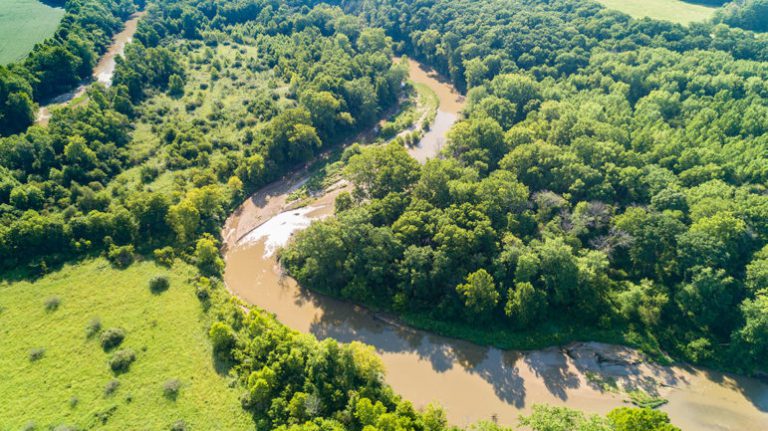Last week, the Supreme Court ruled that the Clean Water Act applies to groundwater contamination, which can seep into protected waters like lakes or rivers. The ruling will allow Illinois environmental groups to sue companies that leak coal ash waste, a byproduct of coal burning, into groundwater.
Illinois Newsroom’s environmental reporter Lecia Bushak has more.
Illinois has grappled with coal ash ponds contaminating groundwater for decades. The state has some of the highest coal ash pond contamination levels in the country, according to a 2018 report from Earthjustice and Prairie Rivers Network. That same report found that out of 24 coal ash pond sites in Illinois, 22 had groundwater contamination at unsafe levels.
“Every single one of these coal ash ponds are located right next to rivers or lakes,” said Andrew Rehn, Water Resources Engineer at Prairie Rivers Network. “[The Supreme Court ruling] was big news for us. One way or the other, I think this ruling will give us a way to use the Clean Water Act to actually protect waters.”
Depending on what treatment processes power plants used when burning coal, the resulting coal ash can contain a mix of different contaminants, including heavy metals like arsenic, lead and chromium, Rehn says.

“It’s really a smorgasbord of metals,” Rehn said. “So what’s in these ponds can vary, but we’ve detected a number of the coal ash pollutants at elevated levels coming out of the ponds in the Middle Fork and into the river by directly testing those seeps.”
One existing lawsuit that can now move forward involves the Vistra Power Plant near Oakwood. The power plant has been leaking coal ash pollution into the Middle Fork of the Vermilion River for decades. Rehn says that the lawsuit had been held up waiting on the Supreme Court decision.
“This seems like we’re going to be able to move forward and continue to take these steps to protect Illinois’ only National Scenic River,” Rehn said. “So I think that is the most salient example where this is going to have really big immediate change on Illinois and protecting groundwater here.”
Last year, Illinois passed the Coal Ash Pollution Prevention Act, which would require Illinois EPA to create more specific regulations for coal ash ponds in the state.
Lecia Bushak is a multimedia environmental journalist for Illinois Newsroom. Follow her @Lecia_Bushak.

